Fun Words From Other Languages That Can Expand Your Relationship with Nature
Words shape our reality and how we think about things and people. As Desmond Tutu said in a 1999 interview with Bill Moyers, “Language is very powerful. Language does not just describe reality. Language creates the reality it describes.” Therefore, how we talk about the natural world shapes how we experience the natural world. In English, the way we describe the environment tends to separate us from nature. For example, the New York Times has referred to black bears as “pests,” oceans are infested with sharks, the beautiful boreal forests of Canada are reduced to lumber, and when we speak of climbing a mountain, we often speak of conquering it. Describing the natural world in this way disconnects us.
Instead of being confined inside a world shaped by the words of one culture, it can be fun to explore how other cultures—perhaps those with a more intimate and interconnected relationship with the natural world—describe their outdoor experiences.
Languages are complicated, and I am by no means an expert in those below, but here are some fun words from reliable sources that might help reframe how we think about the natural world on our next trail run.
Japanese
- Boketto (n)—Gazing vacantly into the distance without really thinking about anything specific.1 Who else experiences boketto after they’ve hit the summit of a tough climb?
- Komorebi (n)—Sunlight filtering through the trees.2 Truly, there isn’t anything better than standing on a tree-covered trail and looking up to see the light shine through, preferably at sunrise.
- Hanafubuki (n)— A snowstorm of petals.3 While this phrase refers to cherry blossoms, which are hard to come by in the United States, unless you’re running along the mall in Washington, D.C., the mental imagery of a snowstorm of cherry blossoms is stunning.
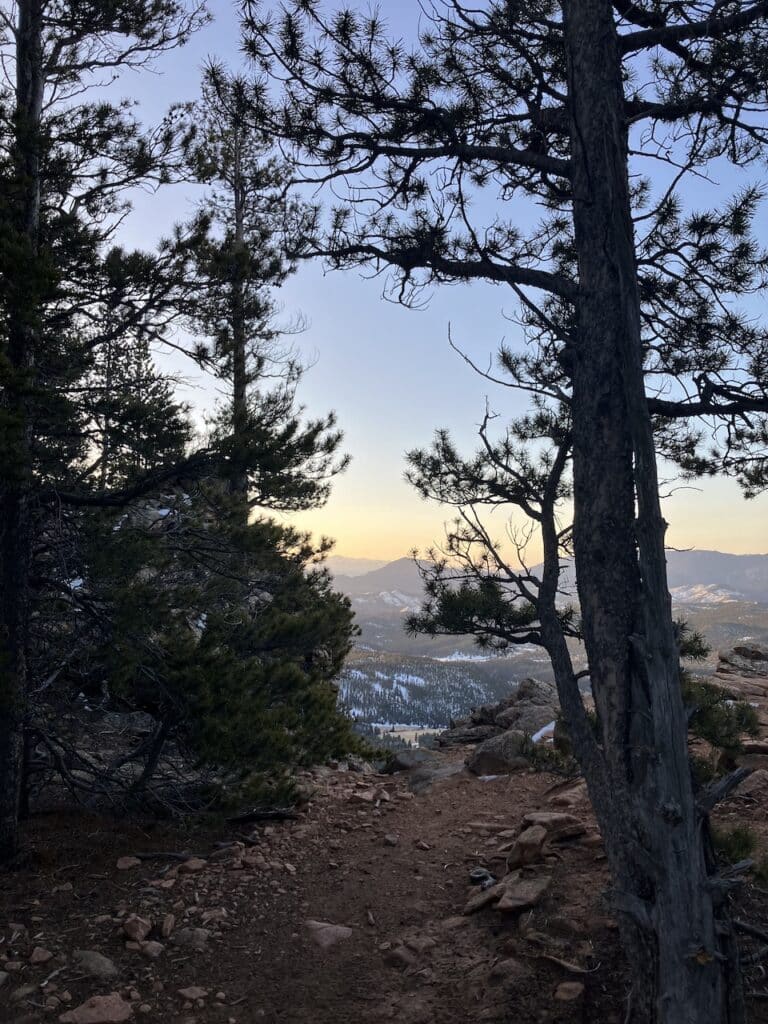
Spanish
- Vacilando (v)—John Steinbeck describes one use of this word to translate to something along the lines of “he is going somewhere but doesn’t greatly care whether or not he gets there, although he has direction.”4 While finishing a race might be rewarding, the middle of the race is where the memories are made.
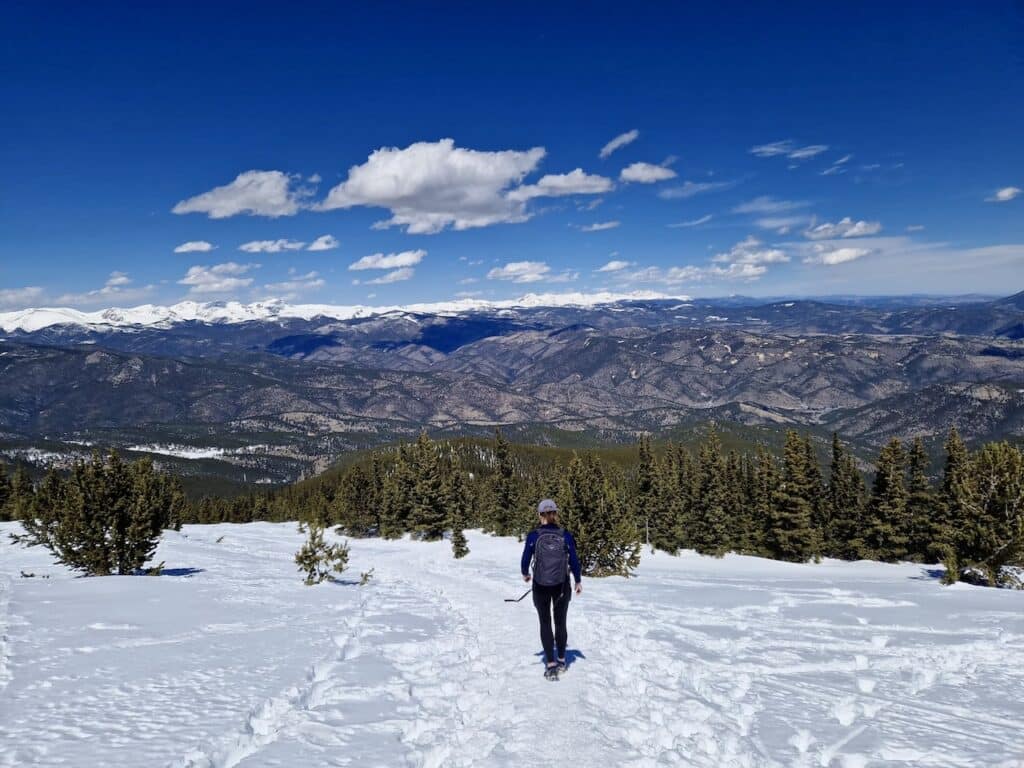
Scandinavian languages
- Friluftsliv (n)—This Swedish word means open-air living. It has been used to explain how spending time outdoors benefits the body and soul.5 This concept might sound like a given to those of us who love to recreate outside.
- Kaamos (n)—In Finnish, this term means darkness, describing a period when the sun doesn’t rise between December and January.6 While we may not experience this in North America unless you’re super far north in Canada, it may kind of feel like Kaamos when you’re running through the night in an ultra.
- Mulata (v)— In Finnish, this phrase means “to become wet by falling down.”7 While not ideal, this is an experience that many of us runners are familiar with.
English, there are several lesser-used words in that describe the natural world:
- Apricity (n)—The warmth of the sun in winter.8 Have you ever stopped on the trail in winter, turned your face to the sun, and appreciated the apricity?
- Orophilous (a) Preferring a subalpine environment.9 Okay, you caught me. I’m an orophilous lady.
- Thigmotropism (n)— A plant’s movement in response to touch.10 Sometimes it’s fun to remember that the plant friends we run by every day are living, breathing beings.
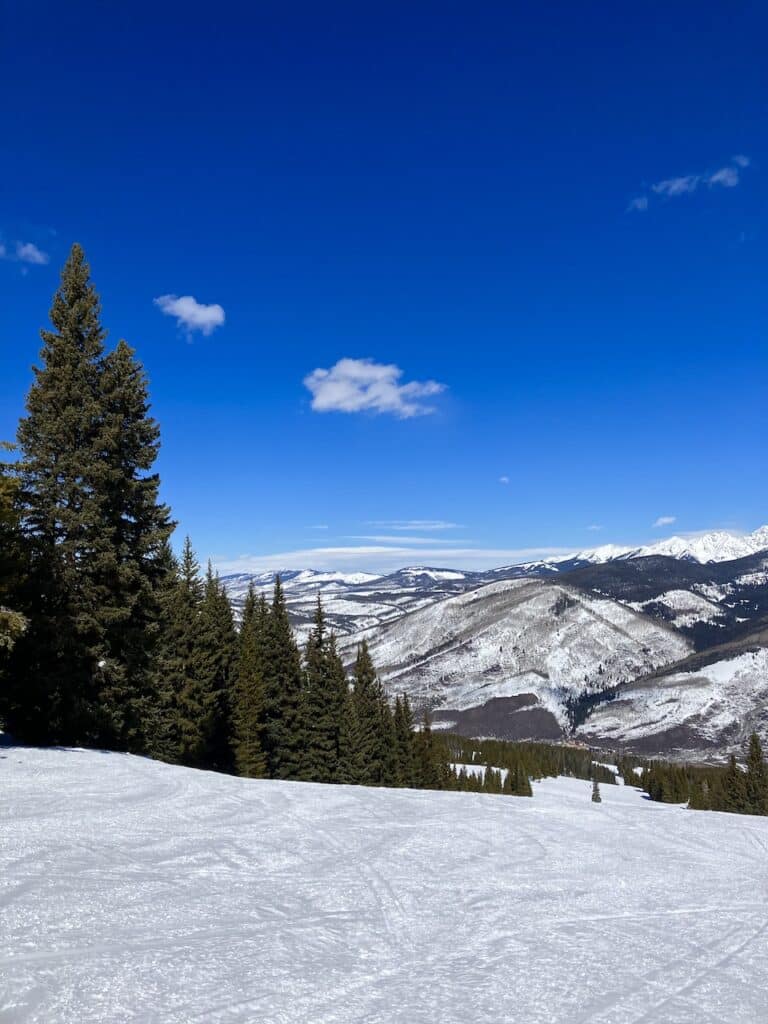
Native languages
- In Braiding Sweetgrass, Robin Wall Kimmerer describes how in the Ojibwe language, many words that English speakers think of as nouns, are verbs, such as “to be a hill,” “to be red,” “to be a long sandy stretch of beach,” and “to be a bay.”
- There often aren’t direct translations for words from other cultures, but in the Māori culture, the word for land and the word for placenta are the same word, “whenua.” In this culture, the world exemplifies interconnectivity, as is demonstrated by the phrase, “Ko au te whenua, ko te whenua, ko au’ – ‘I am the land and the land is me.’
These words have only scratched the surface of ways to describe—and think— about nature. I’m curious, which nature terms inspire you?
- Sanders, E. F. (2015). Lost in translation: An illustrated compendium of untranslatable words from around the world. Square Peg. ↩︎
- Komorebi 木漏れ日. Komorebi 木漏れ日 | Chicago Botanic Garden. (n.d.). https://www.chicagobotanic.org/nature_and_wellness/komorebi ↩︎
- EMB-japan. (n.d.-a). https://www.us.emb-japan.go.jp/jicc/doc/Teaching%20Tuesday/2017/20170404hanafubuki.pdf ↩︎
- Steinbeck, J. (1980). Travels with Charlie: In Search of America. Penguin Books. ↩︎
- Savage, M. (2022, February 25). Friluftsliv: The Nordic concept of getting outdoors. BBC News. https://www.bbc.com/worklife/article/20171211-friluftsliv-the-nordic-concept-of-getting-outdoors ↩︎
- Kaamos. thisisFINLAND. (2022, January 4). https://finland.fi/emoji/kaamos/ ↩︎
- Mulata – Wiktionary, The free dictionary. Wiktionary. (n.d.). https://en.wiktionary.org/wiki/mulata ↩︎
- Merriam-Webster. (n.d.). America’s most trusted dictionary. Merriam-Webster. https://www.merriam-webster.com/ ↩︎
- Merriam-Webster. (n.d.). America’s most trusted dictionary. Merriam-Webster. https://www.merriam-webster.com/ ↩︎
- Amazon.com: Dictionary of the strange, curious & lovely: 3500 most beautiful english vocabulary words ebook : Devoe, Robin: Kindle store. (n.d.-a). https://www.amazon.com/Dictionary-Strange-Curious-Lovely-Vocabulary-ebook/dp/B07PBN3DPS ↩︎


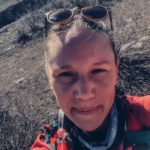
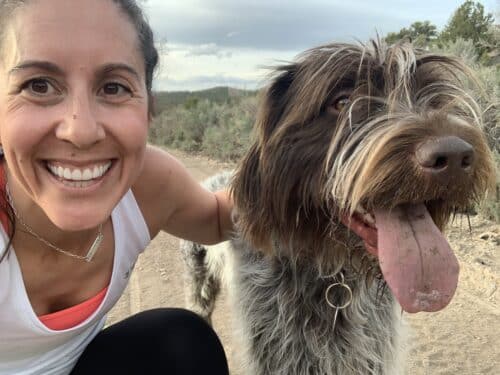
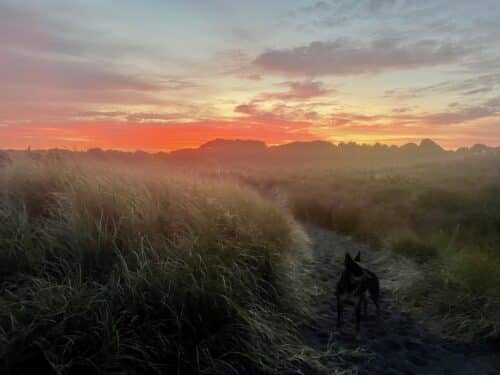

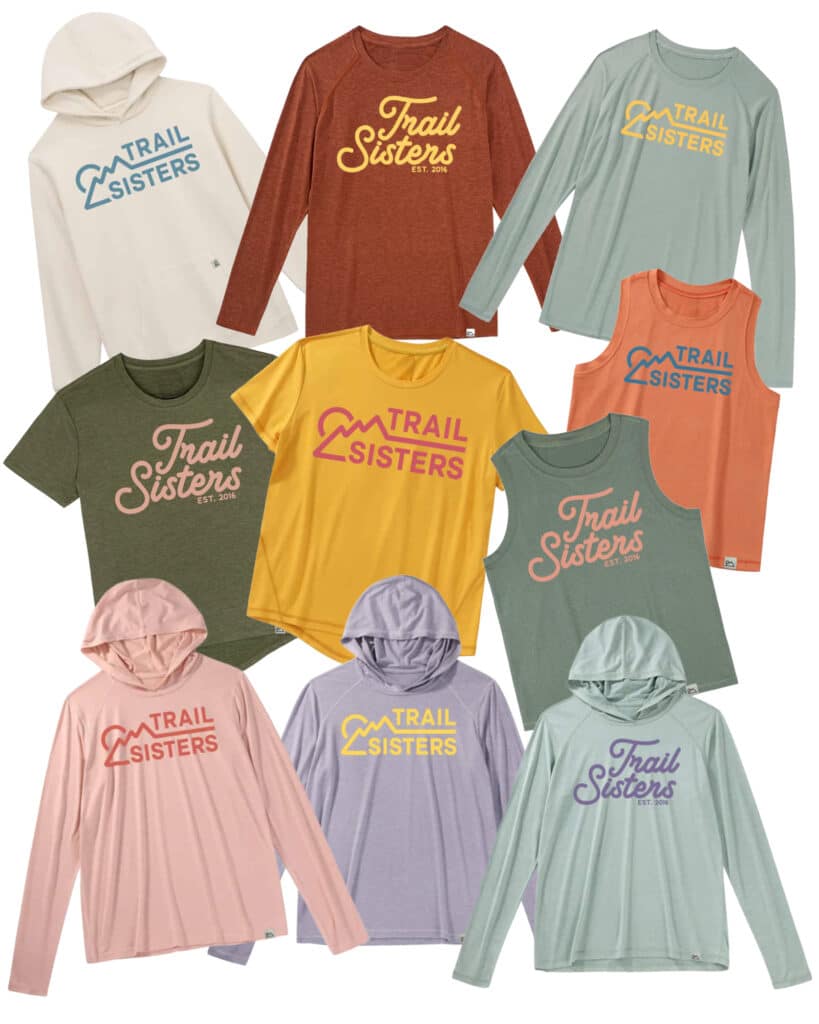

One Response
Love the feeling of apricity and hanafubuki!